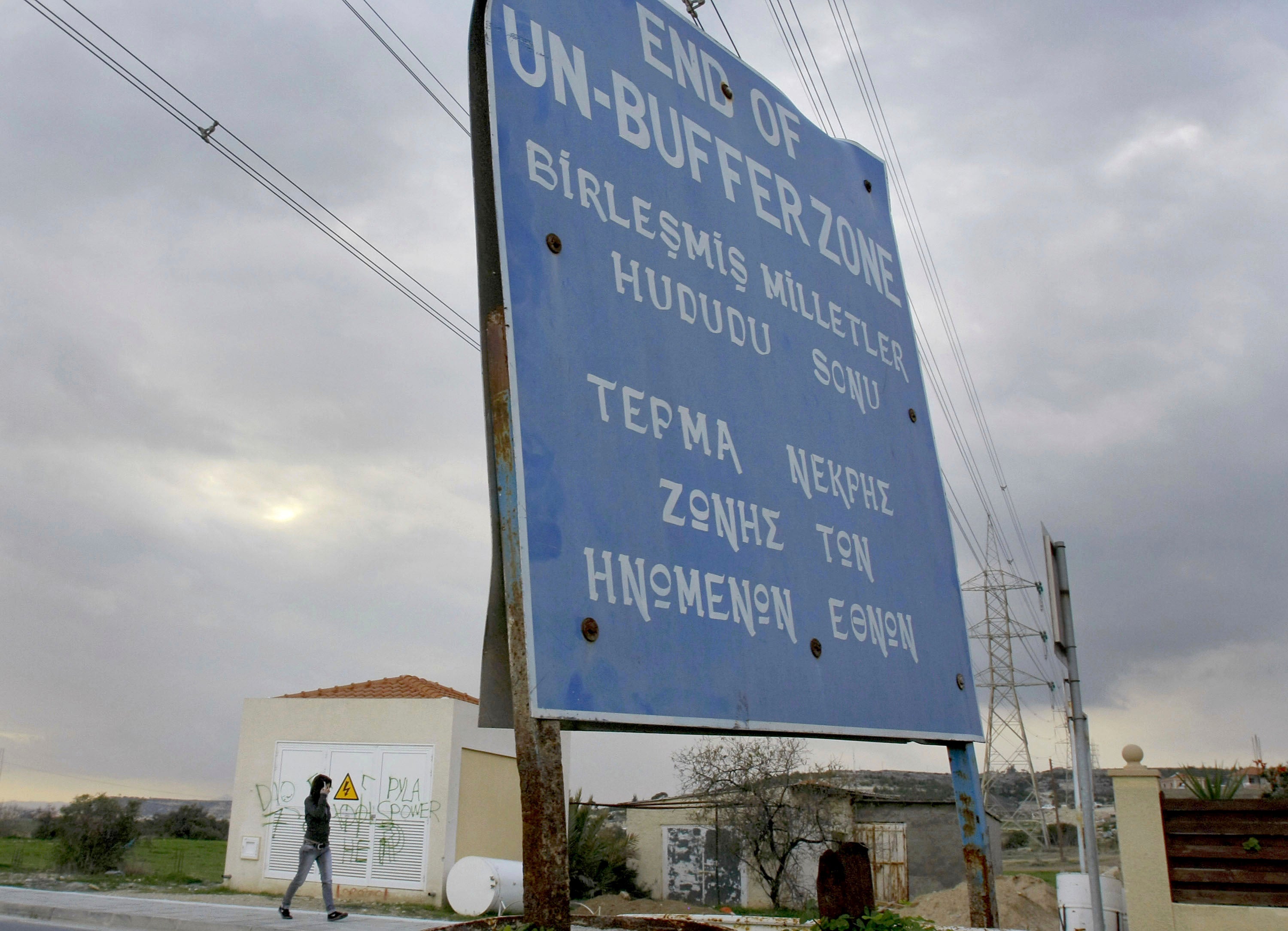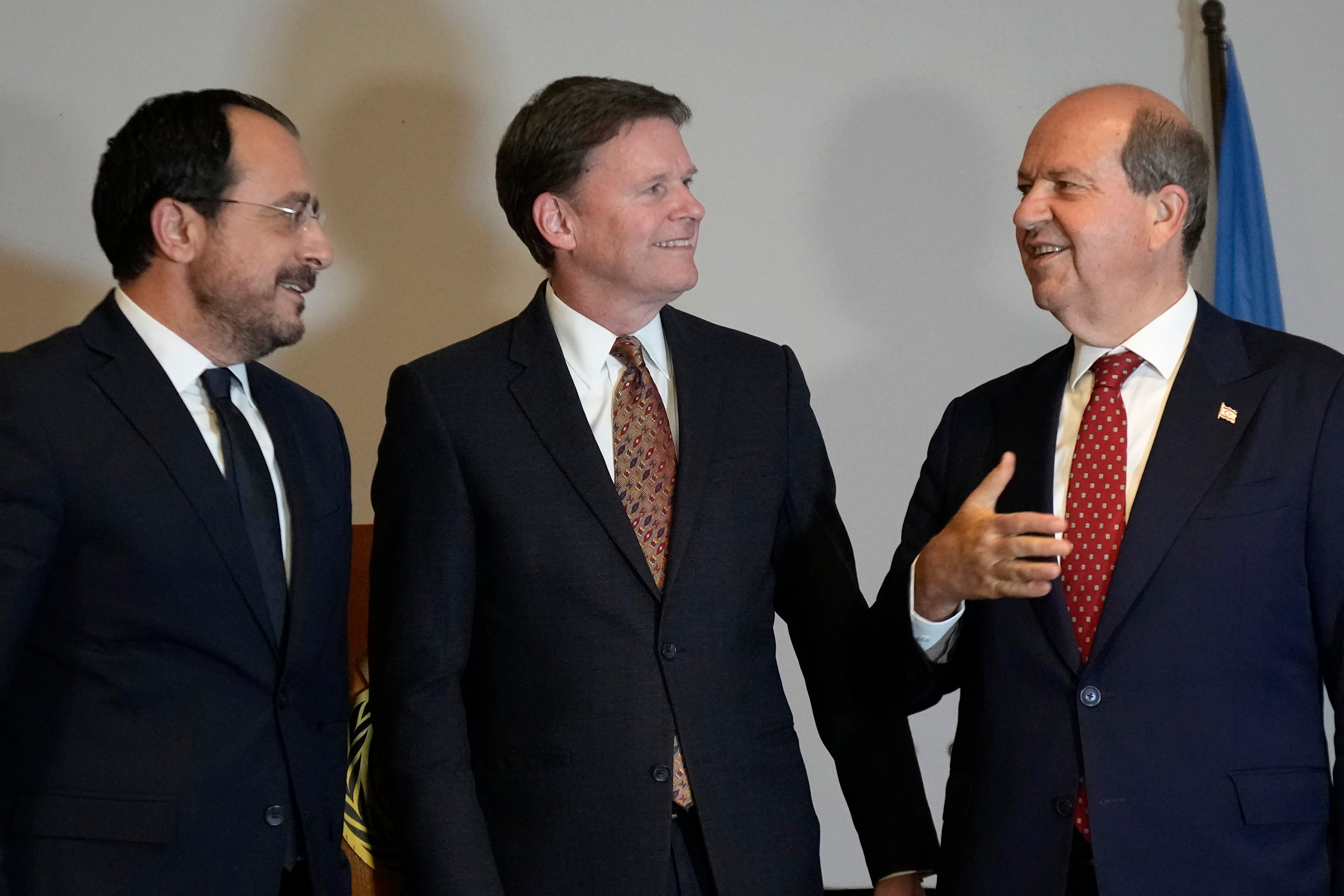UN looks to restart peace talks for divided Cyprus
The most recent push for a peace deal collapsed in 2017

Your support helps us to tell the story
From reproductive rights to climate change to Big Tech, The Independent is on the ground when the story is developing. Whether it's investigating the financials of Elon Musk's pro-Trump PAC or producing our latest documentary, 'The A Word', which shines a light on the American women fighting for reproductive rights, we know how important it is to parse out the facts from the messaging.
At such a critical moment in US history, we need reporters on the ground. Your donation allows us to keep sending journalists to speak to both sides of the story.
The Independent is trusted by Americans across the entire political spectrum. And unlike many other quality news outlets, we choose not to lock Americans out of our reporting and analysis with paywalls. We believe quality journalism should be available to everyone, paid for by those who can afford it.
Your support makes all the difference.Turkey has again insisted on a two-state peace accord in ethnically divided Cyprus as the United Nations prepares to meet with all sides in early spring in hopes of restarting formal talks to resolve one of the world’s most intractable conflicts.
Turkish Foreign Minister Hakan Fidan said Cyprus “must continue on the path of a two-state solution” and that expending efforts on other arrangements ending Cyprus’ half-century divide would be “a waste of time.”
Fidan spoke to reporters after talks with Ersin Tatar, leader of the breakaway Turkish Cypriots whose declaration of independence in 1983 in Cyprus’ northern third is recognized only by Turkey.
Cyprus’ ethnic division occurred in 1974 when Turkey invaded in the wake of a coup, sponsored by the junta then ruling Greece, that aimed to unite the island in the eastern Mediterranean with the Greek state.
The most recent major push for a peace deal collapsed in 2017.
Since then, Turkey has advocated for a two-state arrangement in which the numerically fewer Turkish Cypriots would never be the minority in any power-sharing arrangement.
But Greek Cypriots do not support a two-state deal that they see as formalizing the island’s partition and perpetuating what they see as a threat of a permanent Turkish military presence on the island.

Greek Cypriot officials have maintained that the 2017 talks collapsed primarily on Turkey’s insistence on permanently keeping at least some of its estimated 35,000 troops currently in the island's breakaway north, and on enshrining military intervention rights in any new peace deal.
The U.N. the European Union and others have rejected a two-state deal for Cyprus, saying the only way forward is a federation agreement with Turkish Cypriot and Greek Cypriot zones.
U.N. Secretary-General Antonio Guterres is preparing to host an informal meeting in Switzerland in March to hear what each side envisions for a peace deal. Last year, an envoy Guterres dispatched to Cyprus reportedly concluded that there's no common ground for a return to talks.
The island’s Greek Cypriot President Nikos Christodoulides says he’s ready to resume formal talks immediately but has ruled out any discussion on a two-state arrangement.
Tatar, leader of the breakaway Turkish Cypriots, said the meeting will bring together the two sides in Cyprus, the foreign ministers of “guarantor powers” Greece and Turkey and a senior British official to chart “the next steps” regarding Cyprus’ future.
A peace deal would not only remove a source of instability in the eastern Mediterranean, but could also expedite the development of natural gas deposits inside Cyprus' offshore economic zone that Turkey disputes.